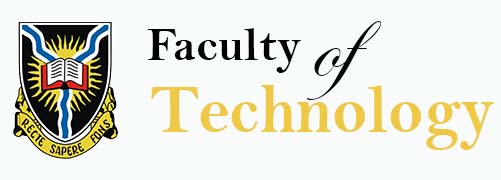Academic Programme
The following basic regulations guiding the award of B.Sc. degree in Automotive Engineering are obtained from the Faculty of Technology University of Ibadan Undergraduate prospectus:
(1) The normal period for an honours degree shall be ten, eight and six semesters for 100,
200 or 300 level entrants, respectively.
(2) The maximum period for an honours degree shall be twelve, ten and eight semesters for 100, 200 and 300 level entrants, respectively.
(3) A student who has spent more than one academic year in excess of the approved minimum period of study to complete a degree programme shall not normally be eligible for an honours classification.
(4) A student that has spent the maximum number of academic sessions on the programme shall not be eligible for admission or transfer to another programme.
(5) A student that has not spent the maximum number of years on the programme shall be eligible to change his or her course only once during the course of his or her stay in the University such a student shall be considered as a fresh entrant at whatever level he or she is admitted and shall be eligible to remain in the University for only the remaining part of the maximum duration of study for that programme.
(6) Except on health grounds, an undergraduate student may suspend his or her studies for only one academic session at the beginning of the academic session during the course of his or her degree programme.
(7) In the case of students officially suspended by the University, the period of suspension will not count, i.e., will not be considered as part of the time spent on the programme.
Courses
Courses are arranged in levels of academic progress. There are five levels of courses numbered 101-199, 201-299, 301-399, 401-499 and 501-599. For ease of identification, course numbers are prefixed by a three-character programme/subject code. All the courses to be offered in the programme have the unique and university-based code ‘TAU’ denoting Technology Automotive Engineering. The course code is pre-fixed with three digits with the first digit indicating the level of the course.
Units
Consist of specified number of student-teacher contact hours per week in a semester. Units are used in two complementary ways: one, as a measure of course weighting, and the other, as an indicator of student work load. The minimum credit load per semester is 15 credit units.
Standard Terminologies
The following standard terminologies are used for different categories of courses.
(i) Compulsory Course: A course which a student must take and pass before the student can graduate.
(ii) Required Course:A course which a student must take but not necessarily pass before the student can graduate. Where there is a group of such courses a student may be required to pass a minimum number of units of such courses in a particular session.
(iii) Elective Course:A course that a student may take to broaden his/her knowledge and to increase the total number of his/her units. Students may graduate without passing the course provided the student has passed the minimum number of units required for the programme. In the Cumulative Grade Point Average (CGPA) system every course taken will be used in compiling the students’ final result whether he/she passes it or not. It therefore serves a student better not to register for a course if he or she is not going to be able to attend lectures and take examination.
(iv)Pre-requisite Course: A course whose knowledge is essential prior to taking another specified course. In some cases, the minimum mark which a student should have may be specified (usually 30%).
(v) Concurrent Courses:Specified courses which must be taken within the same semester.
(vi)University Courses – General Studies (GES) Courses: These are university courses which are with compulsory and required status. No student may graduate from University of Ibadan without taking ALL relevant required GES courses and must pass the compulsory ones. The GES courses specified for the Automotive Engineering programme are listed below:
GES 101 Use of English I
GES 102 African Cultures and Civilization
GES 103 Government, Society and the Economy
GES 106 Philosophy and Logic
GES 107 Reproductive Health, Sexually Transmitted Infections (STIs) and Human Immunodeficiency Virus (HIV)
GES 108 Introduction to French
GES 201 Use of English II
GES 301 Introduction to Entrepreneurial Skills
However, students can either take GES 103 or GES 106
- 753 views
